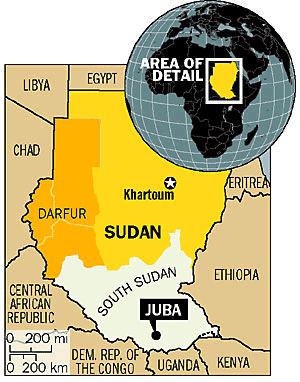South Sudan celebrates its first birthday!

This past Monday, South Sudan achieved its first year of independence, amid celebration and continued struggle.
Street parties were one feature of the anniversary of independence, but there are also signs that the hopes for the new country were not fully realized. For example, border skirmishes continue amid reports of ethnic violence and reprisals. Lack of security -- and notably, food insecurity -- remain big challenges. In this environment, it would be easy to become discouraged, and the drama that these stories provide to our news outlets are easier to report than the long, hard slog of progress. Cynicism remains a feature of mainstream western news coverage of South Sudan.
We should not be surprised by this. But also, and instead, we should count the successes for what they are -- legitimacy, peace, and a nation embarking on a long road of rediscovery.
Among other successes not reported in such places as the BBC coverage of the anniversary, the Duk Lost Boys clinic has celebrated five years of improvement in medical care and access, including a hospital which has just built a new wing. The John Dau Foundation in New York State has been behind this steady progress, and has invested over a significant time period its time, energy, finances and talent.
John Dau is one of the Lost Boys of Sudan, who entered the US after surviving that long trek, graduated from Syracuse University, and began work to contribute to his homeland. The Foundation is the living embodiment of the hope of the South Sudanese people. It did not require independence per se, since Mr. Dau's reinvestment in his homeland predates independence by four years; but with it, the pace of change promises to grow. Best of all, the point of the Foundation is to support the clinic not forever, but in the view that the government of South Sudan will one day be able to oversee its operations directly.
As a matter of peace and social justice, the Duk Lost Boys Clinic offers forward-thinking and the long view that our media so often eschews in favor of the 30-second spot, or the soundbite. Individuals such as John Dau represent a next chapter in South Sudan, long in the making, and this one individual's work is already replicated 52,000 times -- for every instance of a life-saving care, operation, successful birth, and nutritional aid. There is no other medical facility for 75 miles; arrivals and departures are by foot only; but the news travels much farther than that.
Happy Birthday, South Sudan -- new babies successfully delivered in this first year are the living, breathing promise of all that you have hoped for. Many happy returns!





